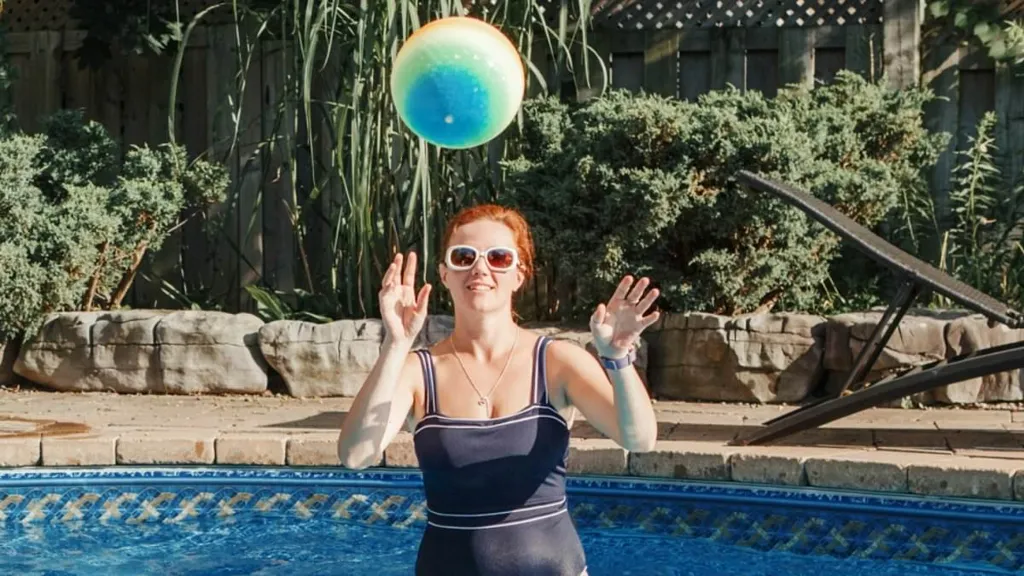Health authorities have issued an urgent health warning on a very delicate matter - how long to avoid swimming pools if you get diarrhoea.
As the weather heats us over Christmas and throughout the summer, huge numbers of Aussies will be using swimming pools - private or public - to cool down.
But such fun activities also bring an increase in the gastrointestinal disease cryptosporidiosis.
It's caused by the microscopic parasite Cryptosporidium and is a common cause of acute diarrhoea in young children.
The advice from doctors is to avoid swimming in a pool for two weeks after experiencing diarrhoea symptoms.
As well as infecting humans, Cryptosporidium occurs in a variety of animals including cattle, sheep, dogs and cats.
Queesland's Chief Health Officer Dr Heidi Carroll said cryptosporidiosis is usually acquired through ingesting contaminated water or food, or through contact with infected individuals or animals.
'A common mode of transmission is by ingesting water contaminated with Cryptosporidium parasites and this can occur by people accidentally swallowing water in facilities such as swimming pools or other swimming areas,' she said.
Health authorities have issued an urgent health warning on a very delicate matter - how long to avoid swimming pools if you get diarrhoea.
'People may not realise that you can be infectious some time after diarrhoea symptoms cease, so that's why we're asking people to avoid swimming for 14 days after experiencing these symptoms.'
During last summer and autumn, Queensland experienced a significant sustained spike in cryptosporidiosis cases.
Queensland Health recorded 6,103 cryptosporidiosis notifications across the state up to December 18.
This was an enormous increase compared to 1,314 cases in 2023 and 535 cases in 2022 during the same period.
Most cases this year (5,619 notifications) were recorded between January 1 to May 30.
Dr Carroll said most cryptosporidiosis cases have been recorded in the south-east corner of the state this year.
'Nearly three quarters (73 per cent) of cases have occurred among residents in the Hospital and Health Service regions of Metro South, Metro North, Gold Coast, Sunshine Coast and West Moreton,' she said.
'Children aged nine years and under have accounted for 44 per cent of cryptosporidiosis notifications this year with 2,698 cases recorded in this age group.'
But in better news, Dr Carroll said cryptosporidiosis case numbers have declined in the second half of the year.
'Between 12 February and 24 March this year, Queensland Health was recording more than 430 cases per week on average.
'It's great to see these numbers have fallen significantly in recent months, and we're now recording an average of 15 cases per week.'
This could change for the worse as the mercury tilts higher, though.
'As the weather heats up and more people are swimming in pools and other recreational water facilities, we could see a spike in numbers again, so we're encouraging people to take the proper precautions,' she said.
Dr Carroll said people could take several measures to protect themselves and others against cryptosporidiosis infection.
'Be careful not to swallow water when swimming in any setting,' she said.
'I also advise people to avoid swimming in rivers, creeks or dams within a week after heavy rain.
'It's so important to wash hands thoroughly after going to the toilet, changing nappies and after cleaning up animal faeces to minimise transmission of disease.'
She said parents and carers should also wash the hands of toddlers and babies after a nappy change.
'Children with diarrhoea should not return to childcare or school until diarrhoea has ceased for 24 hours.'
Dr Carroll said people can also minimise risk by washing fruit and vegetables before eating them and boiling any untreated water and then cooling it before drinking.
Though there is no specific treatment for cryptosporidiosis, it is important to stay hydrated.
People experiencing severe illness, difficulty maintaining adequate fluid intake or long-lasting diarrhoea should seek medical advice.
